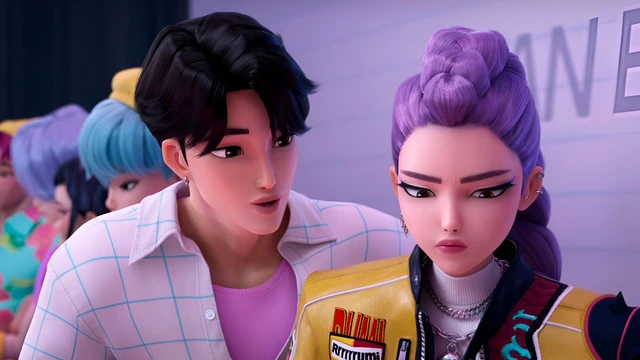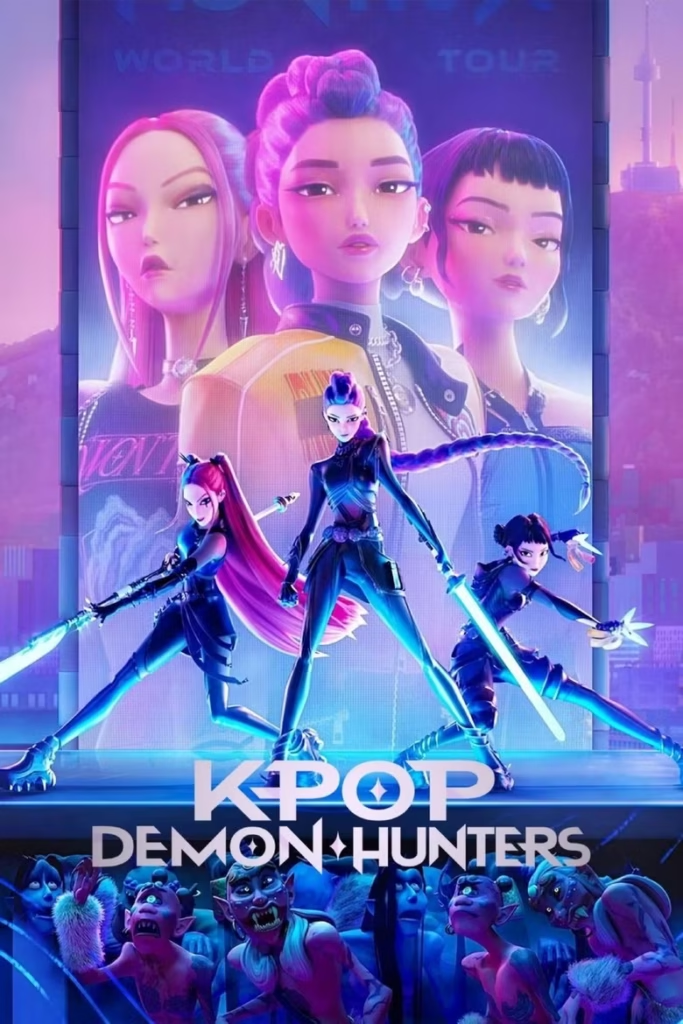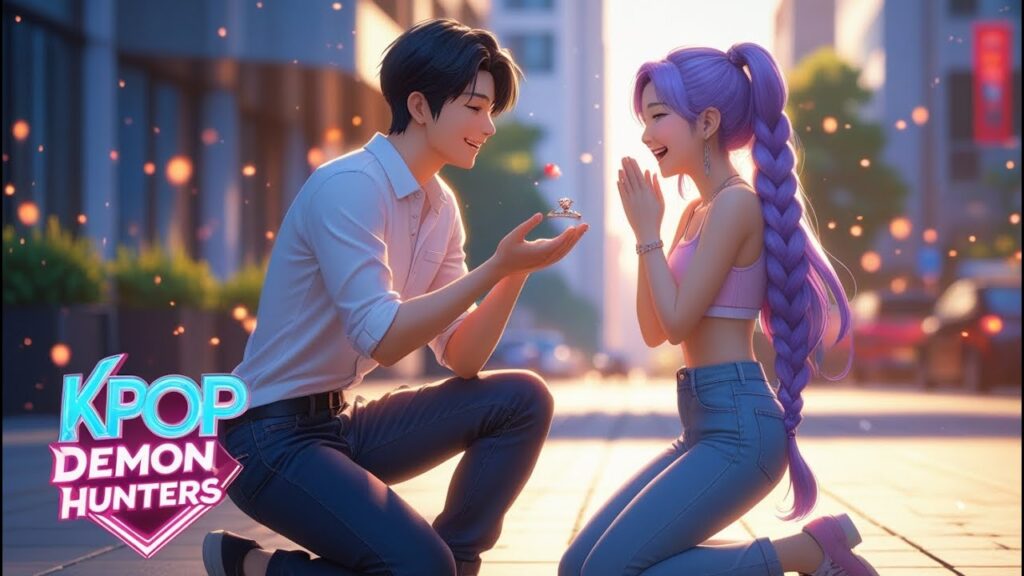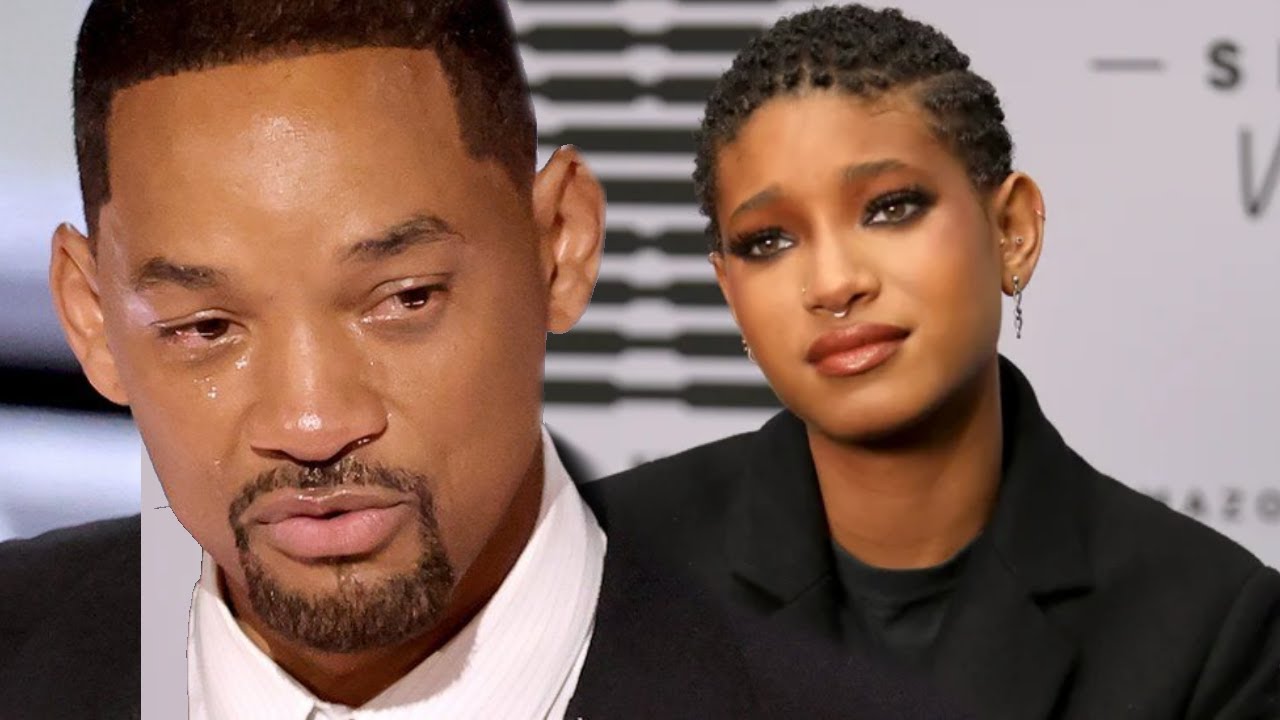In the vibrant world of K-pop, where glittering stages and infectious beats captivate millions, Netflix’s 2025 animated musical fantasy KPop Demon Hunters introduces a thrilling twist: idols who moonlight as supernatural warriors. Directed by Maggie Kang and Chris Appelhans, this film blends high-energy performances with demon-slaying action, centering on Rumi Kang, the charismatic leader of the girl group HUNTR/X (often stylized as Huntrix). Voiced by Arden Cho for dialogue and EJAE for singing, Rumi’s arc is a poignant tale of self-discovery, battling inner demons—quite literally—and embracing one’s true identity. From her crippling self-doubt rooted in her hybrid heritage to her triumphant summoning of the Golden Honmoon, Rumi’s journey resonates with themes of acceptance and empowerment. This article delves into her transformative path, exploring how she evolves from a shadowed idol to a beacon of hope.
Rumi’s Origins: A Legacy of Secrets and Shadows
Rumi Kang’s story begins in tragedy and mystery. Born as a cambion—a half-human, half-demon hybrid—she is the daughter of Mi-yeong Ryu, a legendary K-pop idol from the Sunlight Sisters who secretly fought demons, and an absent demon father. Mi-yeong’s death shortly after Rumi’s birth left the young girl in the care of Celine (voiced by Yunjin Kim), her mother’s best friend and fellow demon hunter. Celine raised Rumi as her own, training her in both the art of K-pop performance and combat skills to continue the family legacy of protecting humanity from demonic incursions.
From a young age, Rumi grappled with visible demon markings on her skin, symbols of her “cursed” heritage that she learned to conceal with makeup and illusions. Celine instilled in her the belief that summoning the Golden Honmoon—a legendary upgrade to the protective barrier known as the Honmoon—could purify her demonic side, allowing her to become fully human. The Honmoon itself is a mystical shield fueled by the positive soul energy generated from K-pop concerts, preventing demons from invading the human world. This promise became Rumi’s driving force, but it also sowed seeds of profound self-doubt. She viewed her demon half as a “mistake,” a flaw that made her unworthy of her mother’s legacy or her friends’ trust.
As a teenager, Rumi’s insecurities manifested in emotional distance and overwork. She pushed herself relentlessly, fearing that any slip-up could expose her secret and endanger those around her. This internal conflict is masterfully portrayed through Arden Cho’s nuanced voice acting, capturing Rumi’s blend of outward confidence and inner turmoil. For more on the voice cast’s insights, check out our related article on KPop Demon Hunters Voice Actors.

Forming Huntrix: Building a Family Amidst the Chaos
In her late teens, Rumi co-founded HUNTR/X with Mira (voiced by Chaeyoung of TWICE) and Zoey (voiced by Sandra Oh in a surprising cameo role). The trio quickly rose to stardom, their electrifying performances not only topping charts but also secretly powering the Honmoon. As the group’s leader and eldest member, Rumi acted as the protective “older sister,” coordinating their dual lives as idols and demon hunters. Their stage personas—Rumi as the fierce center, Mira as the bubbly rapper, and Zoey as the visual powerhouse—mirrored their hunting dynamics, where Rumi’s tactical leadership shone.
However, success amplified Rumi’s self-doubt. As her demon markings began to spread with age, she hid her worsening condition, including a strained voice from overusing her magical singing abilities. Songs like “Golden,” a standout track in the film’s soundtrack, highlight her vocal prowess, channeling hope into energy blasts against demons. Yet, behind the scenes, Rumi’s fear of rejection isolated her. She performed through pain, refusing rest, as seen in a poignant scene where she collapses after a concert, whispering to herself, “I can’t let them see the monster inside.”
This phase of the film underscores Rumi’s recklessness born from insecurity. Her relationships with Mira and Zoey deepen here, evolving from bandmates to found family, but her secrecy strains the bonds. External threats, like the demon infiltrations led by the cunning Jinu (voiced by Byung Hun Lee), force Rumi to confront her vulnerabilities. Jinu, leader of the rival boy group Saja Boys and a demon in disguise, initially antagonizes Huntrix but shares a kindred shame about his origins, sparking a complex attraction.
For fans interested in the group’s dynamics, explore our in-depth piece on Huntrix: The Ultimate K-Pop Demon-Slaying Trio.
KPop Demon Hunters is a vibrant 2025 Netflix animated musical fantasy that captivates audiences with its unique blend of K-pop culture and supernatural action. In KPop Demon Hunters, Rumi Kang, a half-demon idol, leads the girl group HUNTR/X in thrilling battles against demonic forces. The film KPop Demon Hunters showcases Rumi’s journey from self-doubt to summoning the Golden Honmoon, a powerful barrier fueled by fan energy. With stunning visuals and a dynamic soundtrack, KPop Demon Hunters redefines animated storytelling by merging K-pop’s infectious energy with demon-hunting heroics. Explore more about KPop Demon Hunters and its iconic characters at likiy.net.
Trials and Revelations: Facing Inner and Outer Demons
As the plot escalates, Rumi’s journey hits rock bottom. The demon king Gwi-Ma, the tyrannical ruler of the Demon Realm, weakened by centuries of defeats, plots to shatter the Honmoon and harvest human souls. Gwi-Ma dispatches Jinu to undermine Huntrix from within, leading to tense rivalries during events like the Global Idol Awards. Rumi’s encounters with Jinu expose her to empathy for demons, challenging her black-and-white view of her heritage.
A pivotal betrayal occurs when Jinu reveals Rumi’s demon markings publicly, causing a rift in Huntrix. Mira and Zoey feel betrayed by her secrecy, amplifying Rumi’s self-loathing. In a heart-wrenching moment, she begs Celine to end her life, believing she’s a threat to her loved ones. This low point forces Rumi to confront her self-doubt head-on. Through flashbacks, we see her childhood struggles, training montages blending dance choreography with swordplay, and her mother’s final words urging self-acceptance.
Rumi’s abilities play a crucial role here. Her Saingeom Sword, a magical blade summoned through song and dance, allows her to unleash Energy Slashes—crescent waves of soul energy that shift from magenta to golden hues when empowered by hope. But her powers falter under doubt, making battles against Gwi-Ma’s minions grueling. Jinu’s redemption arc intersects, as he sacrifices his soul to boost Rumi’s sword, transforming their rivalry into a sacrificial alliance.
The Climax: Summoning the Golden Honmoon and Embracing Wholeness
The film’s climax unfolds at a massive concert-turned-battleground, where Gwi-Ma launches a full assault. Reunited with Mira and Zoey, who forgive and accept her fully, Rumi channels the collective energy of fans, bandmates, and even redeemed demons like Jinu. This unity allows her to summon the Golden Honmoon, an evolved barrier that not only seals the demon realm permanently but also symbolizes her self-acceptance. No longer seeking purification, Rumi integrates her demon side, her markings glowing as assets rather than curses.
In a spectacular sequence, Rumi’s sonic attacks and swordplay culminate in defeating Gwi-Ma, who is ultimately banished or destroyed—depending on interpretations of the ambiguous ending. The Golden Honmoon represents a “new era,” where demons aren’t inherently evil but products of manipulation, hinting at potential sequels. Rumi emerges transformed, her voice stronger, her confidence genuine.

Legacy and Themes: A Message for Fans Worldwide
Rumi’s journey in KPop Demon Hunters is more than action-packed entertainment; it’s a metaphor for overcoming imposter syndrome and embracing duality. In a genre often criticized for perfectionism, the film celebrates flaws as strengths, resonating with K-pop fans facing similar pressures. Arden Cho has shared how voicing Rumi mirrored her own cultural straddling as a Korean-American.
For external resources, visit the official Netflix Tudum page for KPop Demon Hunters or the IMDb entry. Internally, dive into Top K-Pop Animated Films or Demon Lore in Pop Culture.
In conclusion, Rumi’s path from self-doubt to the Golden Honmoon encapsulates the film’s heart: true power comes from within, flaws and all. At around 1500 words, this exploration highlights why KPop Demon Hunters is a must-watch for animation and K-pop enthusiasts alike.
FAQs About Rumi’s Journey in KPop Demon Hunters: From Self-Doubt to Golden Honmoon
Below is a set of frequently asked questions about Rumi’s transformative arc in KPop Demon Hunters, designed to complement the article on likiy.net and enhance reader engagement with SEO-friendly, concise answers. These FAQs address key aspects of Rumi’s character, her journey, and the film’s themes, incorporating internal and external links for further exploration.
1. Who is Rumi Kang in KPop Demon Hunters?
Rumi Kang is the protagonist and leader of the K-pop girl group HUNTR/X (Huntrix) in Netflix’s 2025 animated musical fantasy KPop Demon Hunters. Voiced by Arden Cho (dialogue) and EJAE (singing), she’s a half-human, half-demon cambion who battles demons while hiding her heritage. Her journey centers on overcoming self-doubt to embrace her dual identity. Learn more about the cast in our article on KPop Demon Hunters Voice Actors.
2. What is the Golden Honmoon in the film?
The Golden Honmoon is an evolved version of the Honmoon, a mystical barrier powered by the positive soul energy from K-pop concerts, protecting the human world from demons. Rumi summons it in the climax by uniting her bandmates’ and fans’ energies, symbolizing her self-acceptance. For more on the film’s lore, check out Demon Lore in Pop Culture.
3. Why does Rumi struggle with self-doubt?
Rumi’s self-doubt stems from her cambion heritage, marked by visible demon markings she conceals with makeup. Raised to believe her demon side is a flaw, she fears rejection by her bandmates, Mira and Zoey, and struggles with the pressure of her mother’s legacy as a demon-hunting idol. Her arc explores themes of identity and acceptance, resonating with K-pop’s high-pressure culture.
4. How does Rumi’s relationship with Huntrix evolve?
Initially, Rumi acts as the protective leader of HUNTR/X, keeping her demon heritage secret. A betrayal by Jinu, who exposes her markings, strains her bond with Mira and Zoey. Their eventual forgiveness and unity help Rumi summon the Golden Honmoon, transforming their relationship into a true found family. Dive deeper into the group’s dynamics in Huntrix: The Ultimate K-Pop Demon-Slaying Trio.
5. What role does Jinu play in Rumi’s journey?
Jinu, voiced by Byung Hun Lee, is the leader of the rival boy group Saja Boys and a demon in disguise. Initially an antagonist, his complex attraction to Rumi and shared shame about his origins spark empathy in her. His redemption, sacrificing his soul to empower Rumi’s Saingeom Sword, is pivotal to her growth. For more on the film’s characters, visit Netflix Tudum’s KPop Demon Hunters page.

6. What are Rumi’s powers in KPop Demon Hunters?
Rumi wields the Saingeom Sword, a magical blade summoned through song and dance, and uses Energy Slashes—crescent waves of soul energy that shift from magenta to golden when fueled by hope. Her singing also channels energy to fight demons and power the Honmoon. Her abilities falter under self-doubt but peak when she embraces her identity.
7. How does the film address K-pop culture?
KPop Demon Hunters blends K-pop’s vibrant aesthetics—choreography, fashion, and music—with supernatural action. It critiques the industry’s perfectionism through Rumi’s struggle with her “flawed” heritage, celebrating self-acceptance. The film’s soundtrack, including tracks like “Golden,” enhances its authenticity. Explore related themes in Top K-Pop Animated Films.
8. What is the significance of Rumi’s demon markings?
Rumi’s demon markings are physical symbols of her half-demon heritage, which she hides due to shame. As they spread with age, they represent her internal conflict. By the film’s end, she embraces them as part of her strength, glowing during the Golden Honmoon summoning, symbolizing self-love and integration.
9. How does Arden Cho’s performance enhance Rumi’s character?
Arden Cho’s voice acting captures Rumi’s duality—outward confidence as a K-pop leader and inner turmoil as a cambion. Her emotional delivery, especially in scenes of vulnerability, adds depth to Rumi’s arc. EJAE’s singing complements this, bringing power to Rumi’s musical demon-hunting moments. Read more in our KPop Demon Hunters Voice Actors article.
10. Is there a deeper message in Rumi’s journey?
Rumi’s arc conveys that true strength comes from embracing one’s flaws and dualities. Her journey from self-doubt to summoning the Golden Honmoon mirrors the struggles of K-pop idols and fans facing societal pressures. It’s a universal message of self-acceptance, making the film resonate widely. For more on its themes, see the IMDb entry for KPop Demon Hunters.
These FAQs are crafted to be concise, engaging, and optimized for SEO with keywords like “Rumi,” “KPop Demon Hunters,” “Golden Honmoon,” and “self-doubt.” They link to relevant internal articles on likiy.net and external sources to boost traffic and provide readers with avenues for further exploration. Each answer ties back to Rumi’s journey, reinforcing the article’s focus while addressing common fan queries.




